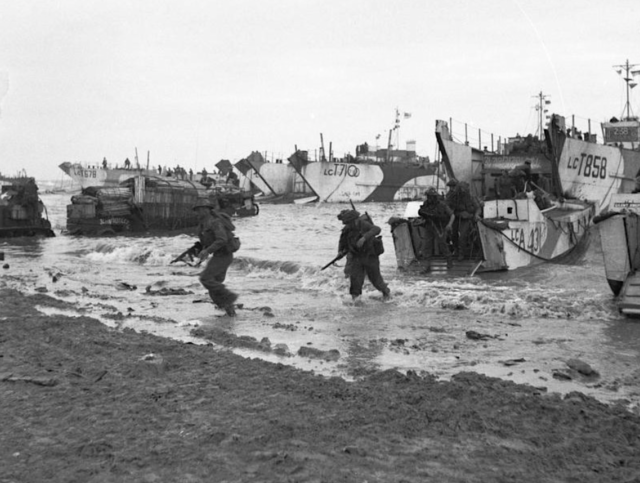This website uses cookies so that we can provide you with the best user experience possible. Cookie information is stored in your browser and performs functions such as recognising you when you return to our website and helping our team to understand which sections of the website you find most interesting and useful.
The drinks of D-Day
With today marking the 80th anniversary of the Allied forces storming the beaches of Normandy, db looks at the role drinks played in Operation Overlord.

While there are all manner of modern drinks releases tying in with D-Day, from novelty gins to limited-edition beer, alcohol did play a small role in the Allied war effort to strike a critical blow against Nazi Germany in 1944.
Supreme Allied Commander (and future President of the US) Dwight D. Eisenhower supposedly developed a taste for Scotch on the rocks during his time in the UK when plans for the land, sea and air invasion of German-occupied France were being put together, with Ike’s preference reportedly being Johnnie Walker Black Label. It is not known whether Eisenhower had a dram the night before 6 June to steady his nerves – in the weeks leading up to the invasion, he was drinking 24 cups of coffee and smoking six packs of cigarettes each day.
For the troops on the ground, drinks offered a welcome taste of home.
In Pete Brown’s sociable history of beer, Man Walks Into a Pub, he reveals the role beer played in lifting the morale of British soldiers.
Brown reveals that “on the very day of the invasion itself, Spitfires flew into France with barrels of beer strapped under their wings”, with the long-range fuel tanks converted to carry batches of British ale.
“Many of these flights were not actually authorised,” Brown writes, “pilots carried them out unofficially…To fool the admin guys, when they were filling out the report of what ordnance they were carrying, they would refer to their cargo as ‘XXX Depth Charge’.”
The book also shares that one West Midlands brewery managed to ship more than 2,000 barrels of beer across the English Channel to Normandy in June 1944, with each labelled with a message to the recipients: “A gift to our fighting forces from Mitchells and Butlers Limited, Birmingham. Best of luck. If this cask is returned we will refill it and send it back to you. Replace cork.”
It is a testament to the strength of Allied logistics, and the thirst of British troops, that “the barrels were somehow returned”.
Fighting spirit
When the Allied soldiers had finally established the beachfront, after much gruelling fighting, they were then not just pushing into German territory, but Calvados territory too.
To this day, numerous regiments of the Canadian military still have the Norman apple brandy as their official regimental drink, as E.C. Russell writes in their book, Customs and Traditions of the Canadian Armed Forces: “Service in Normandy during the Second World War brought new customs to several Canadian units. One such practice that has matured into a highly cherished tradition is the proposing of particular toasts in Calvados, the Norman drink distilled from the apples for which that district of France is so well known. In Le Regiment de Maisonneuve, the toast to the regiment is always in Calvados, as it is in Le Regiment de la Chaudiere.”
The young men who arrived in Normandy in June 1944 were warmly received by the French population, which had been under Nazi occupation for four years, and fine French wine was used to thank them.
Speaking with the BBC in 2019, then 96-year-old US Army veteran Jake Larson, who landed on Omaha Beach, shared the story of how he and his fellow soldiers were greeted when they liberated a Norman village: “There was Camembert! Am I even pronouncing that right? It was delicious, that Camembert cheese, but I didn’t know how you ate that thing – I was just a farm boy from Minnesota! Then they gave us Champagne!”
“I used to drink a whole bottle of that Champagne every morning,” he said. “We were out in the open and they [the Germans] were shooting at us and we were shooting back – and the noise! And I needed to sleep! Well that Champagne was quite a thing – you drink a bottle of that and you could fall asleep! It was amazing stuff!”
Larson, now 101, is currently in Normandy along with his remaining comrades, for the commemorations. Eight decades since D-Day, he has a TikTok account, storytimewithpapajake, where he shares tales from his life to more than 810,000 followers.
The number of D-Day veterans is dwindling, and the 80th anniversary could well be the last major commemoration of the event with some of those who were there present.
However, many of those who survived that bloody day have gone on to live long and happy lives. Donald Howkins, of the 90th Middlesex Regiment of the Royal Artillery, landed at Gold Beach on 6 June – now 103, he has attributed his longevity to a daily dram of whisky.

